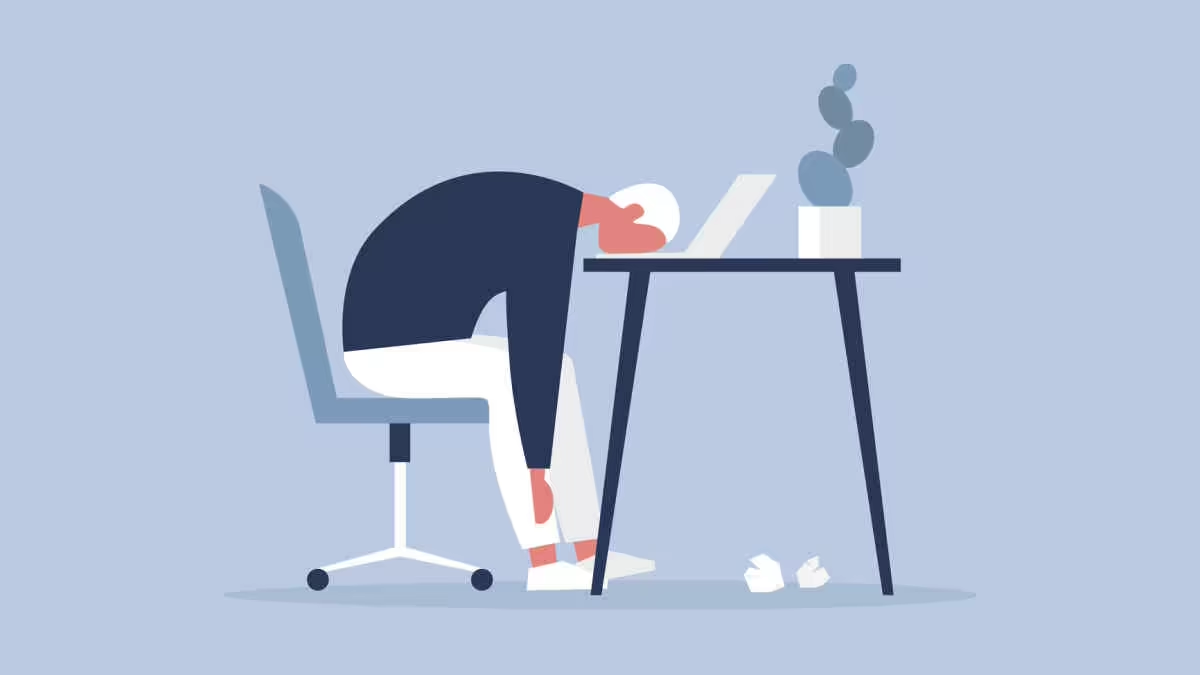Burnout is the lack of meaning in one's job, combined with intellectual, emotional, or physical fatigue as the result of unresolved, long term stress. Even if you have a sit-down job with relatively low demands, you can still experience burnout. No one is truly immune. Even people who love their jobs experience burnout from time to time.
World Health Organisation (2019) classified burnout as a syndrome conceptualized as resulting from chronic workplace stress that has not been successfully managed.
It is characterized by three dimensions:
- Feelings of energy depletion or exhaustion
- Increased mental distance from one’s job
- Feelings of negativism or cynicism related to one's job; and reduced professional efficacy
Burnout can affect anyone, at any time in their lives. A Gallup study (2018) found that 23% of people in the workforce experience burnout very often or always, and an additional 44% feel burnt out sometimes. All this means that nearly two-thirds of employees are burnt out on the job. In this study, burned-out employees are 63% more likely to take a sick day and 2.6 times as likely to be actively seeking a different job. And even if they stay, they typically have 13% lower confidence in their performance and are half as likely to discuss how to approach performance goals with their manager.
Factors that cause burnout in the workplace
Lack of role clarity
According to the State of the American Workplace report (2013), only 60% of workers can strongly agree that they know what is expected of them at work. As responsibility and expectations are moving targets, employees can get overwhelmed just trying to find out what people want from them. The best managers discuss and collaborate with their employees on the responsibilities and performance goals to ensure that expectations are clear and aligned with those goals.
Lack of communication and support from the manager
Frequent communication and support from managers provide a psychological buffer to employees. Employees will know that even if something goes wrong, their manager has their back. Employees who strongly agree that they feel supported by their manager are about 70% less likely to experience burnout regularly (Ben Wigert and Saneeta Agrawal, 2018).
Work-life imbalance
If your work takes up so much of your time that you don't have the energy to spend time with your family, you might burn out quickly.
Signs of burnout
- Inability to concentrate
- Easily upset or angered
- Recurring sickness
- Difficulty sleeping
- Feelings of alienation at work
- Cynicism toward people and their job
- No longer excited about work anymore
How can organizations deal with job burnout?
Give your employees as much autonomy and flexibility as you can. Employees are 43% less likely to experience high levels of burnout when they have a choice in deciding what they want to do and how much time to spend on them (Ryan Pendell, 2018). Employees who in addition to being interested in a particular job, also have the necessary personality traits to fulfil the duties of the job. Here are a few ways to deal with burnout in the workplace:
- Place performance expectations and metrics within the employees' control.
- Identify employees and particularly managers with moderate to extreme behavioral problems to psychological distress.
- Holding training courses appropriate to operators of various occupations.
- Make constructive feedback a learning-focused, two-way conversation.
- Be clear when giving assignments and talk to other partners or the teams. This helps to minimize conflicting requests and ambiguity.

